This article was co-authored by Lauren Urban, LCSW. Lauren Urban is a licensed psychotherapist in Brooklyn, New York, with over 13 years of therapy experience working with children, families, couples, and individuals. She received her Masters in Social Work from Hunter College in 2006, and specializes in working with the LGBTQIA community and with clients in recovery or considering recovery for drug and alcohol use.
There are 15 references cited in this article, which can be found at the bottom of the page.
This article has been viewed 269,741 times.
Everyone at one point or another feels nervous when eating in front of people. Whether it is a first date, a business meeting, or a family event, you feel awkward and you don't like it. By using practical tips, addressing the cause of your nervousness, and practicing your skills you will eat with confidence in front of anyone you desire.
Steps
Applying Practical Tips
-
1Start with small steps and small bites. Your goal is to eat small portions of food to keep things manageable. This way you are ready if someone asks you a question. You can chew your food and swallow it in a short amount of time, which will avoid delays in the conversation.
-
2Keep your napkin ready. If necessary, your napkin can hide the mishaps that may occur. If you get food on your mouth use your napkin to dab the corners and the front of your mouth. This tactic will help you feel proper and polished.Advertisement
-
3Avoid ordering messy food. Any food that has a lot of sauce or a need to be eaten with your hands will add challenge to your situation. Stick with foods that easily fit on your fork and into your mouth. For example, a pasta dish with small pasta shapes, and roasted vegetables. Also, a lean cut of meat and a baked potato. These foods can be cut down to manageable sizes with no mess.
- Some messes are unavoidable. The important thing to remember if something gets messy is you can always call the server to help you clean it up. Most servers are well acquainted with food messes in restaurants.
-
4Find reliable sources to learn table manners. Many books have been written, classes have been taught, and consultants have been hired to help people develop manners.
- Search for the method that fits you best and dive into the learning experience. Your goal will be to learn the proper way to handle yourself during a dining experience, which will increase your confidence. You will be proud to demonstrate your skills.
- Table manners vary from culture to culture. Learn to embrace the differences. If you are in a multi-cultural environment, you might see different behaviors. This doesn't mean they are bad.[1]
- When traveling to a foreign country learn proper table manners to avoid confusion. For example, in some cultures burping is an acceptable behavior while eating, whereas in some cultures it is perceived as rude.
-
5Master good manners. If you learn proper table manners, you can be assured that your confidence while eating will improve. Mastering a skill takes time and practice.[2] The good news is you eat multiple times a day so you will have many opportunities to practice.
- Eat while sitting in front of a mirror or video yourself to evaluate your manners. Make changes as necessary and continue to do it until you are comfortable watching yourself. Once you know how you look to others, you will be less critical of yourself.
- If you realize you take really big bites of food, or talk with your mouth full, simply readjust your actions, watch your improved behavior and you've solved the problem.
-
6Teach others to become comfortable. When you become proficient at a skill and teach it to others, it solidifies your skills and confidence. Not everyone gets the chance to learn table manners, and subsequently might feel ashamed to eat in front of others. You can help them conquer the same struggle you have conquered.
- Avoid offering help to someone who has not asked you for help. Sometimes it is best to lead by example. It can be a sensitive subject to discuss.
- When appropriate, engage a child in a playful game that allows you to teach him table manners.
Addressing Your Nervousness
-
1Use problem solving techniques to create change. Focus your attention on solving the problem you have eating in front of others. Approaching personal struggles with the attitude that they are problems to be solved will give you the step-by-step structure you need to change.[3] Generating creative solutions is a key component to solving problems.
- Make a list of the things you would like to change about your reactions when you are in a social eating situation. For example, you would like to be confident when ordering food, or you would like to have a good conversation and not worry about the food you might get on your face.
- Identify possible solutions for every problem on your list. Search online for a restaurant's menu and review it before going. Once you are there, pick a food that will be easy to eat. If food gets on your face, you always have your napkin to keep things clean.
- Once you have written the list and the solutions, sign your name to it symbolizing your commitment to the process. Get a witness to sign it as well, which will help you be accountable for your actions.
- After each occasion determine if there is anything you can do differently the next time, and recognize the things that worked.
-
2Relax before, during and after meals. When you are calm, everything seems manageable. Your task is to create your own sense of calm so you can enjoy your meal instead of worrying. Experiment with the various methods designed to help you relax.[4]
- Prior to your meal close your eyes and visualize yourself enjoying your food and having a great conversation. Imagine the server laying down fabulous food for you to taste. Notice the other people around you focusing on their food, not on you.
- Remember to take cleansing breaths during the meal between bites. This will help you to relax and regroup if you feel your nerves flare up.[5] Tell yourself that with each breath you become more relaxed.
- After a meal, take a few minutes to sit and appreciate what you ate, the company you had, and that you enjoyed the experience. The goal is to create positive experiences for you to build upon.
-
3Determine if you are unfairly comparing yourself to others. Negative self-judgment is often linked with feelings of unworthiness, and can be made worse by constant comparisons to others.[6] You might be feeling so bad about yourself that you don't want to subject yourself to more judgement about your eating. Focus on building yourself up rather than tearing yourself down because you are worried about feeling stupid, clumsy or embarrassed.
- Don't let it stop you from trying, caring and engaging with friends and family on special food-related occasions.
- Look in the mirror and say, “You are not stupid, clumsy and you will not embarrass yourself when eating in front of anyone.” [7]
- Question your self-perception. You may be harshly judging yourself, with no supporting evidence that you would fail in a social situation involving food.
- Look away from others if you find you are judging the way they eat. When you judge others it reinforces your beliefs that everyone is judging you, because you are judging them. Not everyone judges other people. You can be one of those people.[8]
-
4Change your thoughts. A thought can ultimately change a feeling, which can change a belief. In order to feel better about eating in front of others, pick a better thought. You may notice the high frequency of your negative thoughts, which will show you there is room for improvement. Focus on generating positive thoughts to replace the negative ones.
- A thought like, “I'm nervous about eating in public” may stem from your assumptive feeling, “People will judge me when I eat.” This may reflect your negative belief, “I'm clumsy and there's nothing I can do about it.”
- If you catch yourself thinking negative thoughts about yourself pause and challenge your negative self-evaluation. Write down these thoughts in a Thought Diary so you can keep track of them. To start the process ask yourself questions like, what am I saying about myself when I feel nervous, clumsy or awkward eating in front of someone? In what ways am I putting myself down? How am I harshly evaluating myself?
- Once you write these things down, rate the strength of your beliefs on a scale of 0 to 100%. Next, challenge your beliefs by questioning the evidence you are using to support your beliefs. Your goal for using a Thought Diary is to have a balanced self-evaluation.
- Focus on learning to accept yourself. Identify your positive qualities and write them down. For example, ask yourself what are you good at? What struggles have you overcome? What positive qualities do others see in you? Are you responsible, artistic, considerate, or creative? When you see that you have many positive qualities let them sink in and never forget them. Don't minimize them or cast them aside as being irrelevant. They will always matter.[9]
- Stop self-loathing behaviors and thoughts of inadequacy by taking action.[10] Be the first person to congratulate yourself on any job well done. Try to see your positive traits in the way others see you.
-
5Use positive self-talk to prepare for social situations.[11] Be your biggest cheerleader and always be on your side. Tell yourself, “You enjoy your food and you are confident that it is going to taste good and nourish your body. You've got a napkin on your lap in case you need it. You've got nothing to hide.”
-
6Gain perspective about the process of eating. Food is energy and every human needs energy to survive. If you remove the social implications of eating and see it as a necessary function for life, it will lessen the pressure you place on yourself. Every time you sit down to eat shift your thinking and see it as your time to refuel and nourish your body. You can't do the things you want if you don't have the energy to do them.
- Focus on to fact that you are taking positive action for your health rather than worrying about what you look like when you eat.
- Explore your food options to focus on healthy eating habits.[12] When the menu comes, you will be ready to pick an item that you are proud to eat because it is healthy.
Practicing Your Skills
-
1Take a close friend out for a meal. Start your journey with small comfortable steps. Close friends or a family member are less likely to judge you, especially if you tell them you are trying to improve your response to eating in public.
- Ask your friend or loved one to observe you and tell you if there is something peculiar about how you eat. An open discussion will help you make adjustments if necessary. You will likely find out that others have experienced the same things you have and appreciate you discussing the issue.
- Be open to suggestions that haven't occurred to you. It will help you improve.
-
2Laugh about life's challenges. Laughter can be healing in many situations.[13] Allow yourself to laugh and lighten your mood. Don't take yourself too seriously. Feeling awkward in front of someone when you eat is not the biggest problem to have. Life could be much worse, so laugh and help yourself see the positive things in life.
- Find an appropriate place where you will not get into trouble for making a mess. Sit down with a friend at the table with the intention of eating in an extremely messy and sloppy way. It's time to play! Go overboard and smear food all over your face and play with your food and your friend's food. The goal is for you to release the pressure related to your worries, and experience the feeling of being wonderfully imperfect.
-
3Let go of your inhibitions and eat. Inhibitions are restrictions you place on yourself and your behaviors, which leave you feeling restricted and self-conscious. People who are positive tend to have lower inhibitions, which allows them to cooperate with the process of change.[14]
- Approach every meal with a positive outlook and tell yourself, “This meal is going to be delicious and no one is going to stop me from enjoying it. Nothing is going to hold me back.”
- An entire world of culinary delights can open up to you if you are comfortable eating in public.
-
4Be courageous on a date. Going on a date with someone can be nerve-racking. Both of you are evaluating each other for compatibility, and that can be intense. Use your relaxation techniques and put your skills into action. You may be doing a lot of talking, very little or just the right balance of the two. Either way, you are prepared to eat with confidence.
- Try meeting for just coffee and a small snack to build your confidence.
- If you go out for lunch or dinner, stay away from foods like spaghetti, corn on the cob, barbecue ribs and things that are messy.
- Remember, you can always get a to-go container to bring your leftovers home. Don't feel pressured to eat everything on your plate.
- Also, remember that sharing dessert can be fun if you've enjoyed the date up to that point.
-
5Have a party when you are ready. You will reach a point when you are comfortable with eat in front of one person or many people. Your confidence will be well-formed and you will feel like you can take care of yourself in any situation. You may not be eating during the entire party, but when you do it will be a positive experience.
- Each social situation gives you the opportunity to improve and become more comfortable.
-
6Seek professional help if necessary. Your awkwardness with eating in public may be associated with social anxiety. If you are severely struggling with this, or if you would simply like to get a professional opinion, counselors are available in your local area.[15]
- The signs of social anxiety or social phobia include but are not limited to: intense fear of social situations in which you will be judged, embarrassed and scrutinized. Anxiety can be triggered when anticipating these situations. This is a condition that can be successfully treated. Available treatment options can be discussed with a therapist or doctor.
- Cognitive-behavioral therapy is one of many types of therapies that are effective with social anxiety disorders.[16]
- Group therapy is also effective when coupled with a problem solving approach.[17] Groups may be focused specifically on social anxiety, or can be formed to help with social and coping skills.
Expert Q&A
-
QuestionHow can I stop being socially anxious?
 Lauren Urban, LCSWLauren Urban is a licensed psychotherapist in Brooklyn, New York, with over 13 years of therapy experience working with children, families, couples, and individuals. She received her Masters in Social Work from Hunter College in 2006, and specializes in working with the LGBTQIA community and with clients in recovery or considering recovery for drug and alcohol use.
Lauren Urban, LCSWLauren Urban is a licensed psychotherapist in Brooklyn, New York, with over 13 years of therapy experience working with children, families, couples, and individuals. She received her Masters in Social Work from Hunter College in 2006, and specializes in working with the LGBTQIA community and with clients in recovery or considering recovery for drug and alcohol use.
Licensed Psychotherapist If you're experiencing general self-consciousness, it's likely something that you can work through. A lot of people get nervous in social settings where they don't know everyone and these feelings are mostly natural and common. Just focus on enjoying yourself and you should relax over time. If you're dealing with an actual anxiety disorder, reach out to a counselor, therapist, or doctor to get some targeted help for the issue. Anxiety is very manageable, but it does require treatment in many cases.
If you're experiencing general self-consciousness, it's likely something that you can work through. A lot of people get nervous in social settings where they don't know everyone and these feelings are mostly natural and common. Just focus on enjoying yourself and you should relax over time. If you're dealing with an actual anxiety disorder, reach out to a counselor, therapist, or doctor to get some targeted help for the issue. Anxiety is very manageable, but it does require treatment in many cases.
Warnings
- Don't let this issue go on forever; it can ruin your enjoyment of life by curtailing your outings. If you continually refuse invitations to go out with friends, they will eventually stop asking. This will cause you to feel isolated and may lead to more serious psychological issues.⧼thumbs_response⧽
- If someone in your life is constantly finding fault with the things you do, consider disconnecting from the friendship. It will be a very positive thing for you to do.⧼thumbs_response⧽
- Allow your most trusted friends to help you through tough times.⧼thumbs_response⧽
- If you suffer extreme feelings of dread, anxiety or apprehension in social situations, contact a counselor to see if treatment is an option.⧼thumbs_response⧽
References
- ↑ http://iteslj.org/Lessons/Kung-TableManners.html
- ↑ http://iteslj.org/Lessons/Kung-TableManners.html
- ↑ http://www.skillsyouneed.com/ips/problem-solving.html
- ↑ https://nccih.nih.gov/health/stress/relaxation.htm
- ↑ http://www.wsj.com/articles/breathing-for-your-better-health-1422311283
- ↑ https://www.psychologytoday.com/blog/communication-success/201409/how-stop-comparing-yourself-others-and-feel-happier
- ↑ http://liveboldandbloom.com/06/self-improvement/snap-out-of-apathy
- ↑ http://www.jpe.ox.ac.uk/papers/the-morality-of-reputation-and-the-judgment-of-others-2/
- ↑ Lauren Urban, LCSW. Licensed Psychotherapist. Expert Interview. 3 September 2018.
- ↑ https://www.psychologytoday.com/blog/maybe-its-just-me/201306/do-the-self-loathing-see-the-same-self-others-do
- ↑ http://www.ncbi.nlm.nih.gov/pmc/articles/PMC3070711/
- ↑ http://www.ncbi.nlm.nih.gov/pmc/articles/PMC2606986/
- ↑ http://www.ncbi.nlm.nih.gov/pmc/articles/PMC2762283/
- ↑ http://journals.plos.org/plosone/article?id=10.1371/journal.pone.0117426
- ↑ Lauren Urban, LCSW. Licensed Psychotherapist. Expert Interview. 3 September 2018.
- ↑ http://www.ncbi.nlm.nih.gov/pmc/articles/PMC3584580/
- ↑ http://www.sciencedirect.com/science/article/pii/S1877042813019058
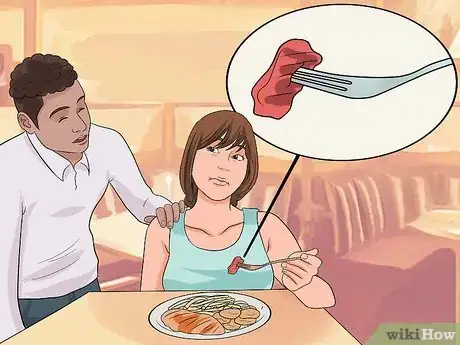

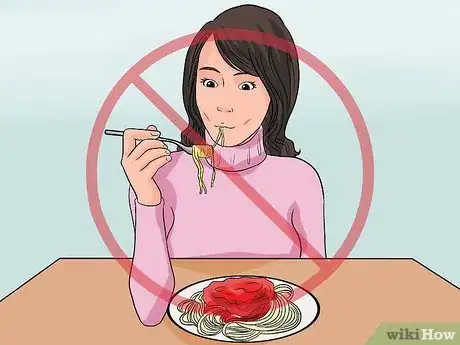
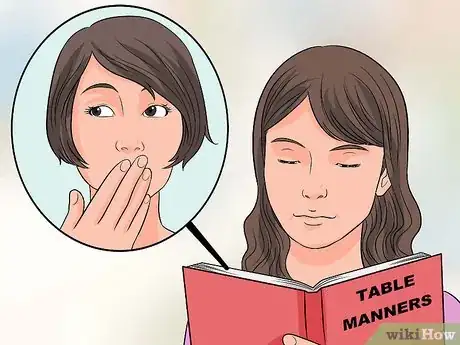
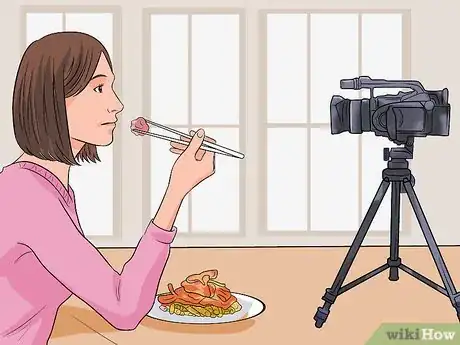
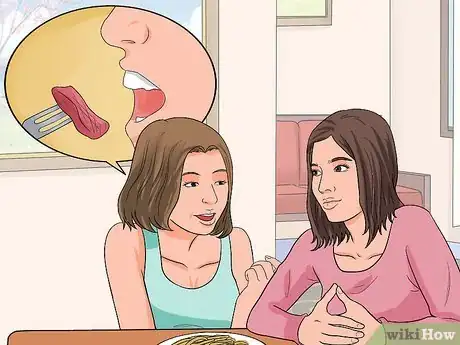
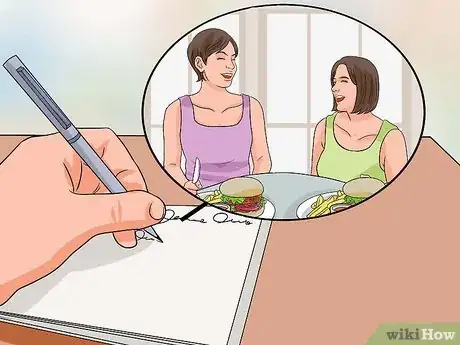
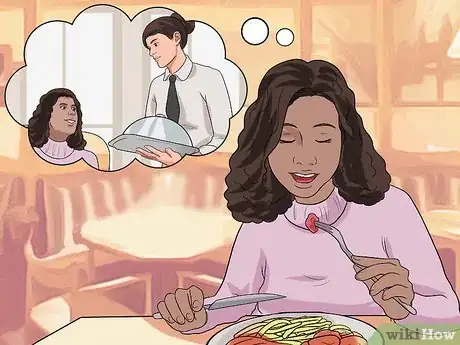
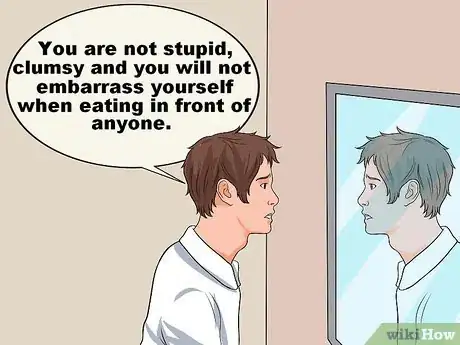
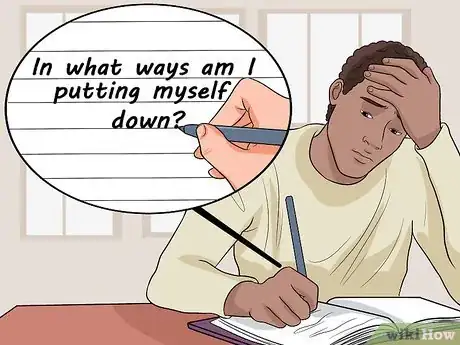

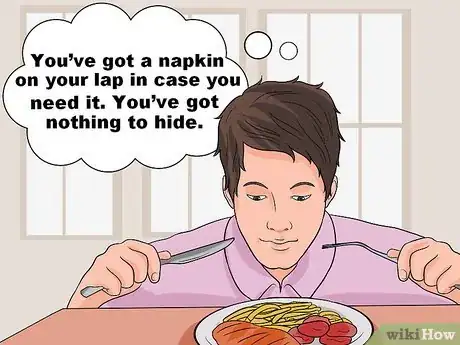
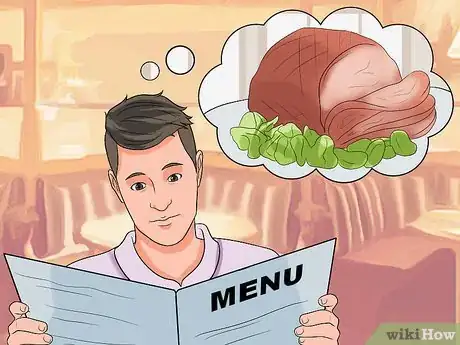


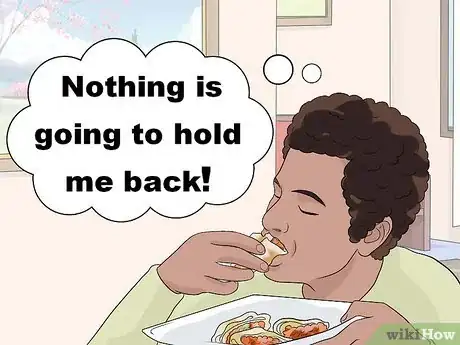

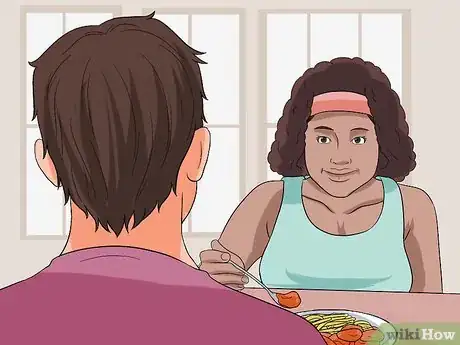
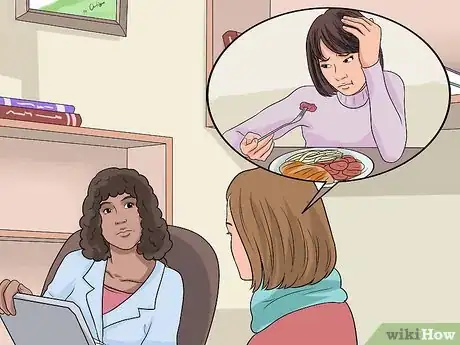









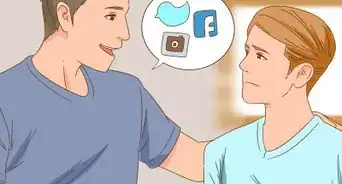



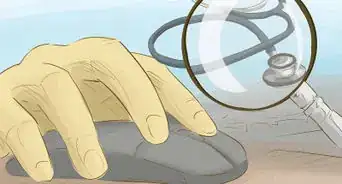
















































Medical Disclaimer
The content of this article is not intended to be a substitute for professional medical advice, examination, diagnosis, or treatment. You should always contact your doctor or other qualified healthcare professional before starting, changing, or stopping any kind of health treatment.
Read More...